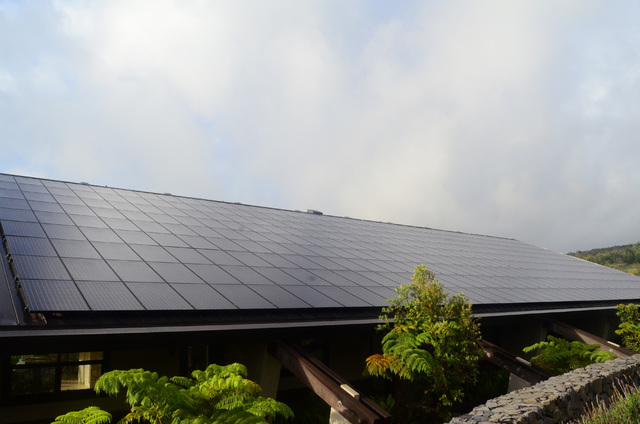KAILUA-KONA — Islandwide Solar is in the midst of a “restructuring,” central to which is the liquidation of assets totaling more than $800,000 in wholesale value from the company’s operations on Hawaii Island, Kauai and Oahu. ADVERTISING KAILUA-KONA — Islandwide
KAILUA-KONA — Islandwide Solar is in the midst of a “restructuring,” central to which is the liquidation of assets totaling more than $800,000 in wholesale value from the company’s operations on Hawaii Island, Kauai and Oahu.
Oahu Auctions will host an on-site auction Saturday at 74-5518 Kaiwi St. in the Kona’s Old Industrial Area, Islandwide Solar’s Big Island location. The auction begins at 10:30 a.m.
The company’s loss might prove a gain to business owners and private citizens alike considering a leap into the business of solar energy, either as providers or consumers. The scope and nature of the inventory makes this auction the first of its kind in Hawaii, according to a press release from Oahu Auctions.
“It’s a tremendous opportunity for contractors, tradesmen, homeowners and do-it-yourself, off-the-grid consumers in rural areas to acquire panels, inverters and materials at a fraction of what they would typically pay,” said David Brandt of Oahu Auctions. “Roughly 50 percent of the materials and hardware would be beneficial to the layperson.”
Vice President of Oahu Auctions Alicia Brandt said the items will be lotted in staggered quantities to allow sales of 600 new solar panels to consumers operating within varying price ranges. Warehouse equipment and office supplies also will be available, among other inventory.
The solar energy industry in Hawaii has taken a bit of a bath since the state Public Utilities Commission ended net energy metering for all new solar customers in October 2015, diminishing the financial value of using solar energy and thereby undercutting public demand for it.
That, in turn, has strained some energy companies such as Islandwide Solar, which has operated in Hawaii since 2007 and installed more than 7,000 commercial and residential solar systems throughout the state.
“The Public Utilities Commission’s termination of HECO’s net energy metering program has had an impact on Hawaii’s solar contractors,” Brandt said.
Islandwide Solar could not be reached for comment by press time Wednesday.
Certain alternatives make the purchase of solar equipment at a markdown from retail value potentially profitable, even for private citizens. The two tariffs from which new solar customers are allowed to choose under new PUC guidelines include a grid-supply option and a self-supply option.
What net energy metering did was allow properties powered by solar panels to bank excess energy and sell it back to the electric company in the form of a price discount and the energy that company actually consumed.
The grid-supply option offers essentially the same paradigm, but significantly lowers the price point per kilowatt hour — meaning the excess energy produced nets solar users a smaller discount than they received with net energy metering when selling that energy back to the grid.
The self-supply option doesn’t allow a structure to transport energy back to the grid for financial compensation in most scenarios.
At first glance, this appears the clearly worse option because excess energy is wasted and renders no profit for the property owner generating it. The average solar-powered household consumes only about 50 percent of energy generated on site, according to the Rocky Mountain Institute.
However, new technology allowing for demand flexibility and battery storage are affording those who install solar in their home or business an opportunity to consume up to 90 percent of energy generated on site. This, in turn, created the possibility for solar installation, production and consumption completely separate from the grid — or breaking away from public utility companies such as HECO completely.
Email Max Dible at mdible@westhawaiitoday.com.



